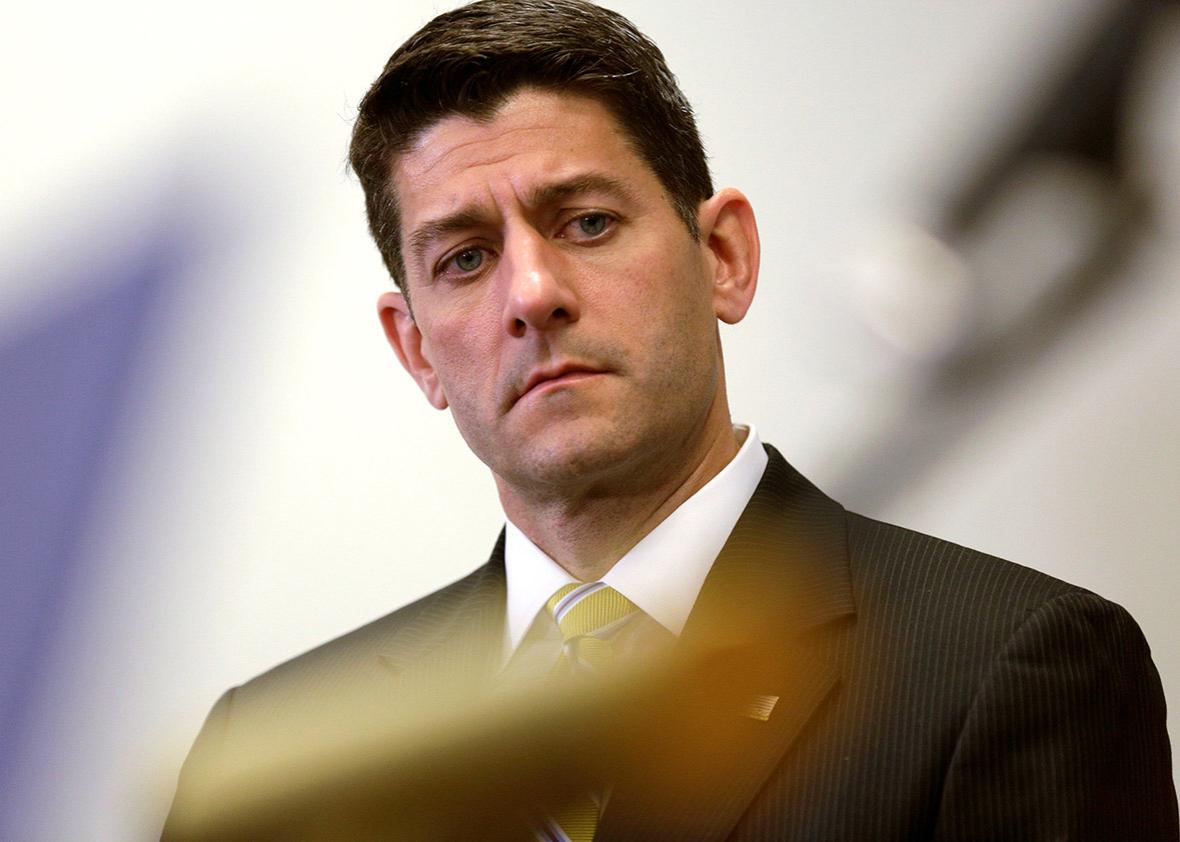Let’s have some laughs and recall the ambitious 2017 agenda the unified Republican government set in the early days of its new rule, all of four months ago.
First, Congress would complete work on comprehensive health care reform by the spring and comprehensive individual and corporate tax reform by the August recess. Once health care was completed, Congress would pass the fiscal year 2018 budget that provided both the reconciliation instructions for tax reform and set new top-line budget figures that allowed appropriators to do their work. All 12 appropriations bills would be passed and signed into law by the end of the fiscal year in late September. Somewhere in all of this was supposed to be a major infrastructure bill and the beginning of construction of a wall along the Southern border.
Memories, memories. Now, by the August recess, the grandest accomplishment Republicans can hope for will be keeping the government from defaulting on its debt obligations and sending the global economy into a tailspin.
Yes, the stupid debt ceiling needs to be raised again—and sooner than expected. Treasury Secretary Steve Mnuchin, testifying before the House Ways and Means Committee last week, urged legislators to raise the ceiling before they left for the August recess that begins at the end of July and runs through Labor Day. Congress originally believed it could leave this until September, but the government is having some cash flow issues. Office of Management and Budget Director Mick Mulvaney explained in a separate hearing that his “understanding is that the [tax] receipts currently are coming in a little bit slower than expected.”
The political problem for Republican members of Congress is that few of their base constituents see a vote to raise the debt ceiling as an accomplishment. And it’s not, really: A true accomplishment would be a vote to eliminate altogether the debt ceiling, an imbecilic statutory conceit that requires Congress to vote on whether it will allow the Treasury Department to finance the spending Congress has already appropriated. For decades the president’s party would do the work passing it while the minority would howl disingenuously about the need for fiscal restraint. That ended in 2011, when the House Republican majority decided it wanted to attach conditions to raising the debt ceiling, and President Obama, in one of his worst moments, agreed to negotiate with them. It was a catastrophe, and one that some conservative Republicans have tried (less successfully) to replicate several times since.
For those not interested in unnecessarily reliving instances of the global economy nearly collapsing over one country’s stupid century-old law, the hope was that once President Obama left office, Republicans would stop caring about the debt ceiling, as parties typically do once they take the White House. Mnuchin, who correctly has referred to the debt ceiling as a “ridiculous concept,” is clearly not interested in gamesmanship. And the president, bless him, doesn’t care about deficit reduction. So can’t they just tell Congress to pass a “clean” increase and get it over with?
Though many members of the House Republican conference might be fine with that, the Freedom Caucus is not. The group released a statement last week demanding “that any increase of the debt ceiling be paired with policy that addresses Washington’s unsustainable spending by cutting where necessary, capping where able, and working to balance in the near future.”
As Politico wrote this week, House Speaker Paul Ryan has a strategic choice to make: Either a vote on a “clean” debt ceiling hike with Democratic votes or a partisan bill with cuts and reforms attached, perhaps achieved through reconciliation to avoid a Senate filibuster. The problem with the latter, as Republican leaders are all too familiar with, is that it puts their fate—and on this issue, the world’s—in the hands of the implacable Freedom Caucus. House Minority Leader Nancy Pelosi, meanwhile, has stated that Democrats will support a “clean” debt ceiling increase.
If Ryan were to pass a “clean” hike with Democratic and Republican votes, then that’s it, right? Not necessarily. Some leading Senate Democrats, including Minority Whip Dick Durbin, believe it’s worthwhile to explore potential areas of leverage in exchange for their votes. “Some options include extending the Children’s Health Insurance Program, which expires in September,” Politico reported, “or agreeing on a spending deal that avoids the dramatic cuts proposed by the Trump administration and congressional Republicans.” Politico added that “[s]ome Democrats believe it would be hypocritical for their party to push for policy concessions after years of demanding debt hikes without them.” And so it would be. (Though who pays a price for political hypocrisy anymore?)
The best way to game out the debt ceiling is to recognize that with the stakes so high, and this Congress so dysfunctional, the simplest resolution is also the most likely. House Republican leaders won’t want to turn the country’s credit rating over to the whims of the Freedom Caucus and likely will opt to pass a clean increase with Democratic votes a day or two before leaving for the August recess. Senate Democrats, also in a rush to get out of town and not really of the mindset that enjoys playing these sort of games, will try to pass the clean increase by unanimous consent. Between now and then, though, expect plenty of tiresome huffing and puffing.
